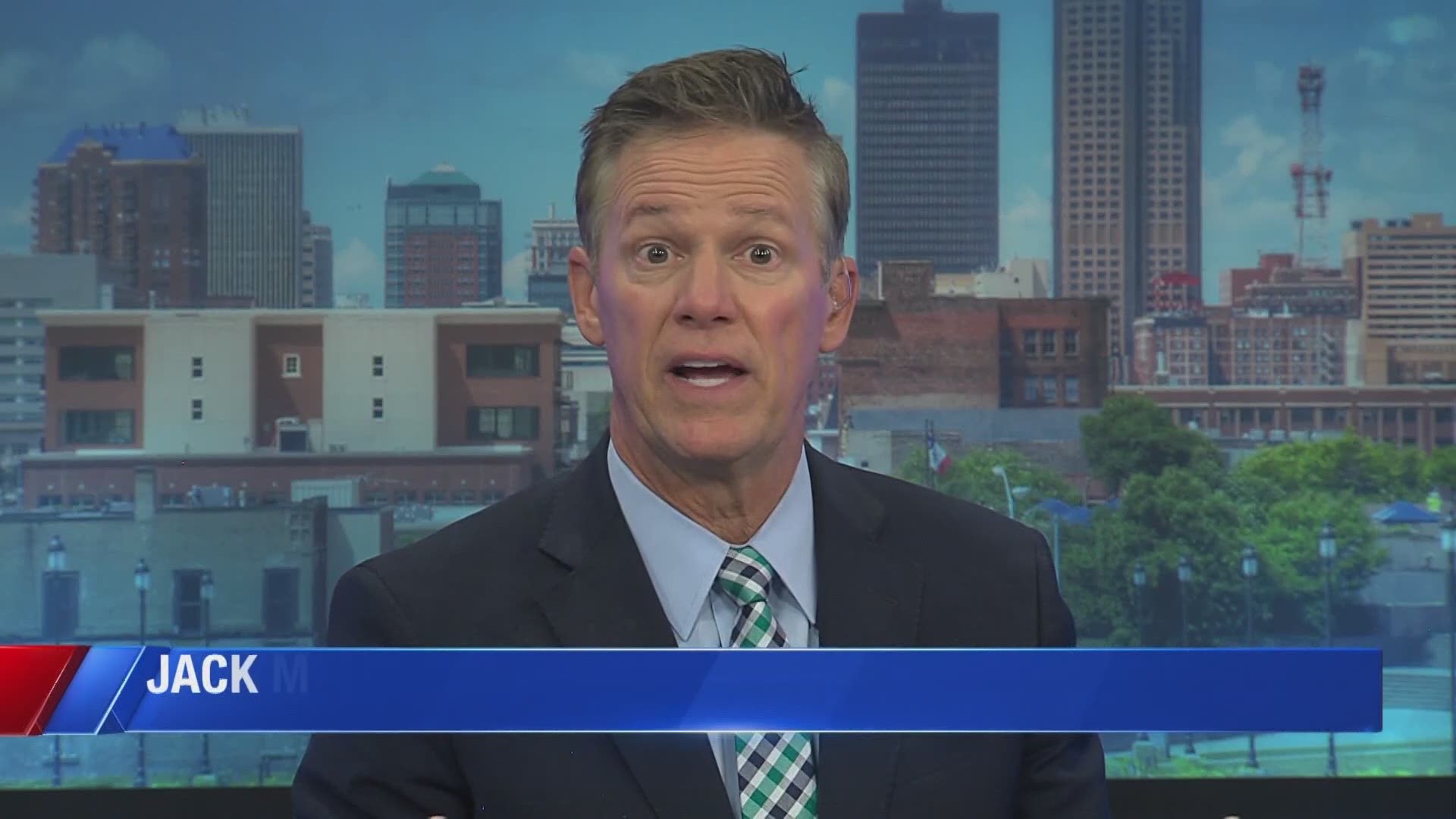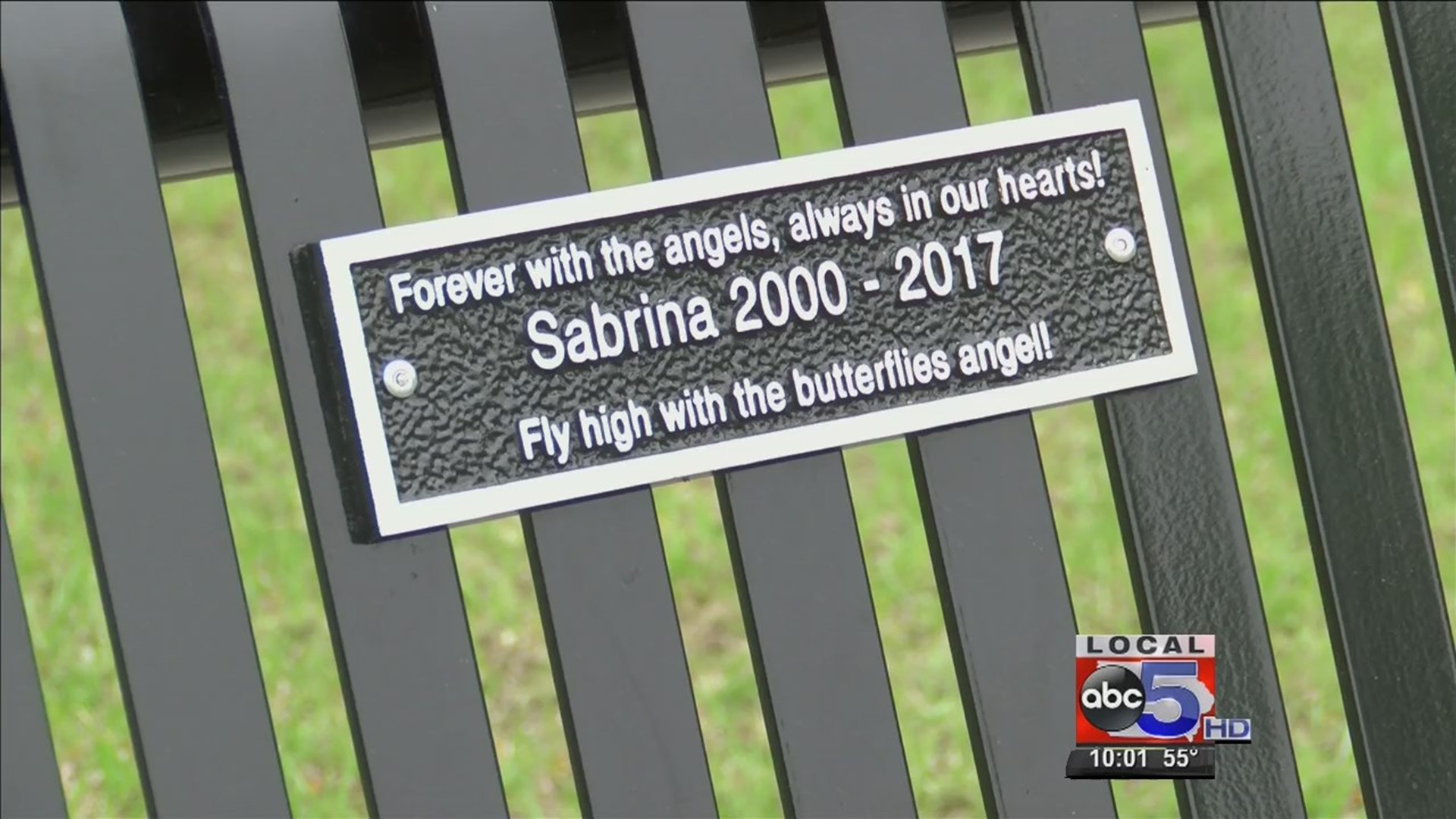DES MOINES, Iowa — A scathing report released Tuesday by Iowa's Ombudsman detailed how Iowa's Department of Human Services failed 16-year-old Sabrina Ray.
Sabrina suffered horrific abuse and starvation, according to the report.
Sabrina's adoptive parents, Marc and Misty Ray, had 11 child abuse reports filed against them between 2010-2015.
None were founded, meaning there wasn't sufficient evidence for the state to prove abuse.
The report listed allegations made against the Rays, who parented foster kids, four adopted children and ran an in-home daycare.
"Several of the allegations lodged against the Rays reported that Sabrina looked extremely thin and unhealthy," according to a synopsis of the report. "Other reports accused the Rays of forcing their foster children to drink soapy water, stand over cold vents, and even eat their own vomit. It was also alleged that the Rays and others living in the home beat and belittled their adopted children and foster children."
This is the second child death report released this year by the Ombudsman's office. The first, published in February, examined how DHS responded to Natalie Finn's death.
In a letter at the beginning of the report, Iowa Ombudsman Kristie Hirschman said there's a third child death case her office is investigating.
Five years later, one pound lighter
Medical examiners determined Sabrina's official cause of death was severe malnutrition due to denial of critical care.
When the Ray's adopted Sabrina in 2012, she was 57 pounds. She was 11 at the time.
When she died in 2017, the 16-year-old was 56 pounds.
The Ombudsman report said when asked, the field worker on Sabrina's case didn't feel she received adequate training through DHS on determining whether a child is malnourished.
In fact, she told the Ombudsman's office she didn't receive any training on how to identify malnourishment.
In the report, DHS said malnourishment training is provided to field workers, but they will work to re-emphasize the importance of identifying malnourishment and how to appropriately respond if malnourishment is suspected.
The video above is from a year after Sabrina died.
DHS accepted 10 out of 13 recommendations from Ombudsman
The Ombudsman's report outlines 13 steps the office believes DHS can take to prevent a death like Sabrina Ray's from happening again.
Some of the recommendations were also made in an Ombudsman report published earlier this year relating to the death of Natalie Finn.
Record retention
The Ombudsman's report recommended DHS retain child abuse intakes and assessment records for a longer period of time.
DHS said this matter is something legislators need to take up.
Foster care protocols
The Ombudsman recommended DHS create a protocol for placing foster families on "hold" and remove children from families on "hold" as soon as possible. The report also suggested DHS review the standards necessary to suspend a foster care license.
DHS agreed with both recommendations.
The department pointed it may not be in a child's best interest to have a blanket policy to remove children from any home on "hold" status because it could be traumatizing.
Malnutrition training
Sabrina's death was found to be the result of severe malnutrition. To prevent future deaths, the Ombudsman recommended additional training for field workers to help them identify signs of malnourishment.
The report also suggested having medical professionals available for consultation on cases.
DHS agreed with both recommendations. The department said they already provide malnourishment training, but will work to re-emphasize the importance of identifying signs and appropriate responses. In relation to the medical professional recommendation, DHS said they're researching ways to effectively implement this policy.
Keeping day cares safe
The Ombudsman made several recommendations relating to day cares and licensure.
First, the report recommends more training for day care licensing staff so workers know when follow up visits are required.
It also recommended amending the checklist used when a child-development home is registered confirming all rooms in a house are observed and in compliance.
DHS agreed with both recommendations, pointing out that there is a difference between child development home compliance staff and child care center licensing consultants.
Another recommendation, the Ombudsman said DHS should ask for more money in their budget for day care licensing staff.
DHS said this is done routinely, but based on the specific recommendation, they'll review child care regulatory staff levels with extra scrutiny.
Lastly, the Ombudsman recommended DHS create a policy so intake staff refer both rejected and accepted child abuse allegations to day care licensing staff if a day care is involved.
DHS agreed with this recommendation and said new manual guidance has been developed and will soon be published.
Communication is key
Two recommendations relate to case tracking and communication.
The Ombudsman suggested DHS initiate a tracking procedure to ensure child abuse report referrals are made to day care licensing staff and home checks are complete. The report also recommended DHS create a tracking and/or notification system to ensure everyone who should get updates on a case is getting them.
DHS agreed with both recommendations. They said notification systems are in place today, and the tracking system will need to be incorporated into their new Child Welfare Information System, which is in the early planning stages.
The Ombudsman also recommended that contracted service workers be included in internal reviews.
DHS agreed with this recommendation.
The final recommendation, which DHS didn't agree to, is that the department conducts internal reviews if the following criteria are met.
- If a child dies as the result of child abuse and:
- The child was in DHS custody at the time of death;
- The child, the child's sibling or any other child living in the house with the child was the subject of a child abuse assessment 12 months before the fatality;
- The child, the child's sibling or any other child living in the house with the child has a pending child welfare or adoption case with DHS 12 months before the fatality;
- The child, the child's sibling or any other child living in the house with the child was the subject of a child abuse report made to DHS or law enforcement 12 months before the fatality, whether or not that report was rejected at intake; or
- The household where the child lived is/was a licensed foster home or provided day care services
DHS responded to this recommendation by saying they're committed to conducting thorough internal reviews.


